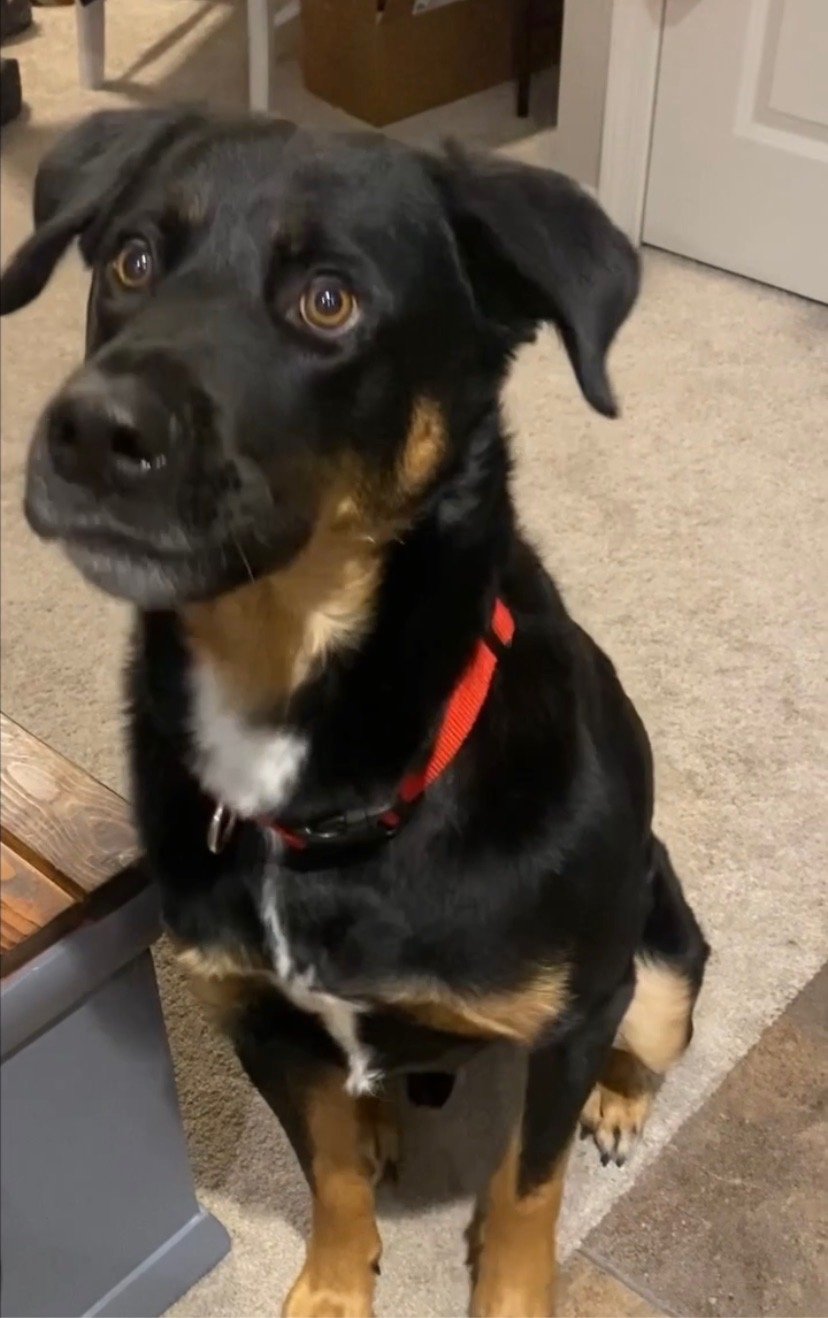Why Is My Dog Already Turning Gray?!
Slowing Down The Aging Process Because We Want Our Dogs To Live Forever
This week, I came to a horrifying realization. Benji’s chin is turning gray. “No - this can’t be true, it’s always been like that!” I thought to myself, grasping at any comfort and trying not to panic. But, sure enough, when checking his pics from when we first rescued him, no gray chin hair.
If you’re like me you cannot bear the thought of your dog aging. I literally had to hold back tears as I frantically scrolled through picture after picture, only to continue confirming my realization. Obviously, we all age. And I know we try and try and try to make the most of every moment of our dog’s life. But, I wanted to get to the bottom of what is happening, as Benji is only THREE. (For reference, dog’s generally start going gray around 4-5 years old.)
Knowing I can’t be the only dog mom out there worrying about this - I did some research so you don’t have to.
Why Is My Dog Prematurely Aging?
The Image In Question!
Genetics - some dogs are just predisposed to this. Interestingly enough, it is a dominant breed often seen in mixes (like Benji). Some common breeds that experience this are poodles, sheep dogs, and long hair breeds. Female dogs also tend to gray earlier than their male counterparts.
Stress - Much like humans, excessive stress leads to early grays. If your dog tends to be anxious, impulsive, or jumpy, this may be a leading factor for those stressful (for you) gray hairs! Separation anxiety can be a huge trigger, especially as work from home jobs transition back into the office.
Health issues - If you haven’t been to the vet lately, maybe it’s time for a check up. Hypothyroidism is just one condition that may be causing this newly distinguished look.
What Can I Do To Stop This Premature Aging?
Establish a routine - Dogs like predictability and it can help alleviate any undo stress. It’s extra helpful if you can plan their normal “downtime” (naps, resting, etc) when you’re set to leave the house.
Exposure training - If your dog is reactive to certain stimuli, reward calm behavior with their favorite treats. Gradually increase the exposure to the stressful stimuli while promoting relaxed behavior.
Exercise your dog - Nothing beats burning of nervous energy like a little exercise (this goes for humans, too!) Work out with your dog (walks, hikes, etc.) and you both can benefit from some endorphins!
Now I can’t say definitively what is causing Benji’s little gray goatee, but I do get some peace of mind knowing we are doing the right things for him. Namely - he has a regular routine, is exercised daily, and has regular check-ups. One area I know we can improve on is his overall nutrition. I am SO GUILTY of letting him snack on human foods, and know there are better dog food options out there than the one we use. This has been the kick in the pants to continue working to make sure Benji lives a long and happy life! We hope this helps, and that your dog’s gray hairs aren’t causing you to go prematurely gray!

